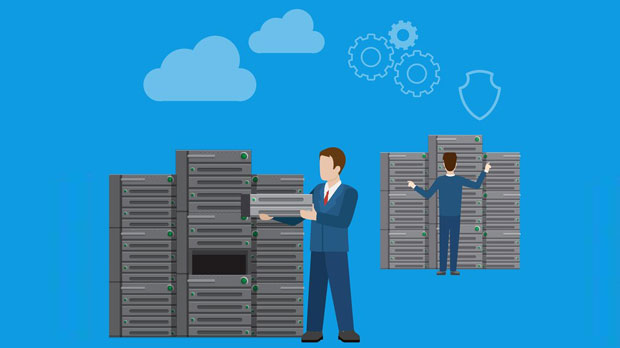When it comes to handling multiple devices simultaneously, the performance of proxy servers plays a crucial role in ensuring seamless and efficient connectivity. Two commonly used proxy servers, PYPROXY and Crossy Proxy, each have unique characteristics that affect their performance when multiple devices are connected at the same time. This article aims to analyze the differences between these two proxies, examining aspects such as speed, reliability, resource utilization, and user experience under heavy load conditions. By understanding these differences, users can make informed decisions about which proxy server best suits their needs in multi-device scenarios. Introduction to Multi-Device Proxy UsageIn today's digital landscape, multi-device use has become the norm for many individuals and organizations. Whether it’s for personal use, business operations, or academic purposes, users often need to access the internet through various devices simultaneously. This is where proxy servers come into play. A proxy acts as an intermediary between a user’s device and the internet, helping to route requests and protect anonymity. However, when multiple devices are connected to the same proxy server, performance issues can arise if the server is not optimized for such loads. Overview of PyProxy and Crossy ProxyBefore delving into the performance differences, it’s important to understand the core architecture and purpose of both PyProxy and Crossy Proxy. PyProxy is known for its lightweight and flexible nature, often preferred by developers and advanced users who need a customizable solution for web scraping, bypassing geo-restrictions, or testing different IPs. On the other hand, Crossy Proxy is designed to offer high-performance solutions for users who need stability and reliability for everyday internet browsing, gaming, or accessing restricted content with minimal latency.Speed and Latency ComparisonOne of the most critical factors in multi-device proxy performance is speed. When multiple devices are connected to a proxy server, the server’s ability to maintain fast and consistent speed is essential for user satisfaction. PyProxy typically boasts a faster speed due to its lightweight design, especially in cases where minimal configuration is required. It can handle more requests per second, making it a suitable choice for situations requiring high-speed data transfer, such as web scraping or automated testing.However, Crossy Proxy, while not as fast as PyProxy, excels in providing consistent and stable performance under heavy loads. Its architecture is optimized to balance speed and stability, ensuring that the connection doesn’t suffer significant drops in speed when multiple devices are connected. For users who prioritize stability over raw speed, Crossy Proxy offers a more reliable experience, especially in scenarios where several devices are accessing high-bandwidth applications simultaneously, such as streaming or gaming.Reliability and Connection StabilityReliability and stability are crucial when using a proxy server with multiple devices. PyProxy, due to its lightweight and often less robust infrastructure, can experience issues such as connection drops or packet loss when many devices are using it simultaneously. This can result in frustrating delays or inconsistent service, especially when high levels of data traffic are being handled.In contrast, Crossy Proxy is built with scalability and load balancing in mind. It tends to perform better when handling multiple devices connected at once, providing stable connections even under stress. This makes it an ideal choice for environments where many users need to access the internet concurrently without significant slowdowns or disruptions. The inherent stability of Crossy Proxy ensures that users can enjoy uninterrupted service, making it a go-to solution for business operations, gaming, or any use case requiring constant uptime.Resource Utilization and EfficiencyResource utilization is another key factor to consider when evaluating the performance of PyProxy and Crossy Proxy in multi-device usage. PyProxy tends to consume fewer resources due to its lightweight nature. It’s efficient in terms of CPU and memory usage, which allows it to scale effectively with the number of devices connected. This makes PyProxy an appealing option for users who need to manage proxies across a large number of devices, as it can handle high requests without putting excessive strain on system resources.On the other hand, Crossy Proxy, while slightly more resource-intensive, is optimized for efficiency in multi-device environments. It’s designed to handle large-scale usage scenarios by effectively managing resource allocation, ensuring that devices do not compete for limited bandwidth. This is particularly useful for businesses or teams that require a higher level of coordination and centralized control when managing multiple devices.Security and Privacy ConsiderationsWhen multiple devices access the internet through a proxy server, security and privacy become significant concerns. PyProxy, being highly customizable, offers robust encryption and privacy features, but these can be difficult to configure properly for users who are not technically adept. If not set up correctly, PyProxy may expose sensitive information, especially in situations where multiple devices are connected from different locations or IP addresses.Crossy Proxy, however, comes with built-in security features designed for ease of use. It provides enhanced encryption, data masking, and IP rotation, which ensure that the privacy of users is maintained even when multiple devices are connected. For users who require a high level of security without the need for complex configurations, Crossy Proxy offers a more straightforward, secure solution for multi-device use.User Experience and ManagementUser experience is another area where PyProxy and Crossy Proxy differ significantly. PyProxy provides users with flexibility and control over their settings, which can be an advantage for experienced users who need to fine-tune their proxy usage. However, the complexity of managing multiple devices can overwhelm users who are unfamiliar with technical configurations.Crossy Proxy, in contrast, offers a more user-friendly interface, with easy-to-understand controls for managing multiple devices. It simplifies the process of setting up and monitoring proxy connections, making it a better choice for those who prioritize simplicity and ease of use over granular control. Its interface also provides real-time monitoring and reporting, which is particularly beneficial in multi-device environments where keeping track of performance across devices is important.Conclusion: Which Proxy is Best for Multi-Device Use?In conclusion, both PyProxy and Crossy Proxy offer distinct advantages depending on the specific needs of users. PyProxy excels in speed and efficiency, making it a great choice for those who require high-performance proxies for specific tasks such as web scraping or testing. However, it may struggle with connection stability when handling multiple devices.Crossy Proxy, on the other hand, provides a more stable and reliable experience under heavy loads, making it the better choice for environments where multiple devices need to be connected simultaneously. It offers enhanced security, easier management, and a more consistent user experience, making it ideal for business use, gaming, or any scenario that requires multiple devices to remain connected without performance degradation.Ultimately, the decision between PyProxy and Crossy Proxy comes down to the specific requirements of the user, with PyProxy being more suited to technical users who value speed and customization, while Crossy Proxy is better for users who need reliability, security, and ease of use in multi-device scenarios.
Sep 03, 2025



































































